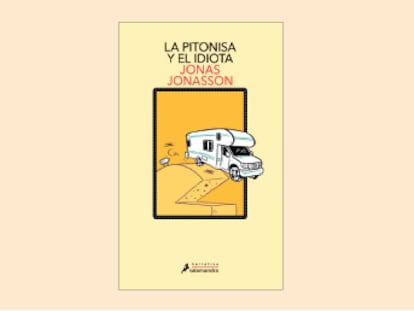Assured Mutual Dependence
The growing dependence of countries on one another’s food, water, and energy requires that the global response to sustainability is taken to the highest political level
During the Cold War, the certainty of “mutually assured destruction” steered the nuclear arms race away from catastrophe: a would-be attacker would face immediate retaliation, inevitably ending in both sides’ annihilation. Today, a very different race is taking place – a race for the earth’s vital resources, and it threatens to undermine stability in key regions of the world. The growing dependence of countries on one another’s food, water, and energy requires that the global response to sustainability is taken to the highest political level.
Unlike the nuclear arms race of the twentieth century, the resource-security agenda is not linear. Mutually assured destruction was explicitly acknowledged during the Cold War in statements from both sides. In the race for resources that defines the twenty-first century, no actor is directly or indirectly threatening other players to curtail food or energy exports, but all bear the systemic risks.
Countries have become unavoidably interdependent, and climate change, water stress, and the loss of ecological resilience all increase the volatility of this mutual dependence. In a world of limited and scarce resources, countries and companies will be forced to make decisions that affect one another’s security.
In order to navigate this interdependence, the Earth Security Index 2014, produced by the Earth Security Initiative, shows countries’ combined vulnerabilities that might increase the risk exposure of governments and companies, unless more strategic approaches and sustainable investments are put in place. The ESI identifies four areas of mutual dependence that will likely shape global security in the coming decades:
- Choke points. Countries’ growing demand for energy, water, food, and land cannot be satisfied without incurring tradeoffs among limited available resources. Choke points are reached when the available resources are insufficient to satisfy demand. In China and India, for example, this means that in certain regions there may not be enough water in the short term to run coal-fired thermal power stations and irrigate large fields to grow crops. In China, 60% of planned coal-fired power plants will be built in water-stressed regions.
- Food. The growing dependence of many countries on food, water, and energy imports creates new opportunities for trade and investment, but it also exposes countries to critical vulnerabilities. Australia, for example, is a large coal exporter but imports most of its refined fuels and holds just three days of fuel stockpiles. The challenges of mutual dependence are particularly acute with respect to food. As the ESI shows, some countries – including Egypt, Peru, and the United Arab Emirates – are heavily dependent on cereal imports from a small number of suppliers.
Moreover, grain suppliers’ exposure to extreme weather may compromise their ability to sustain supplies, with knock-on effects for import-dependent countries. In 2010, for example, Russia imposed an export ban on wheat, following a severe drought. The resulting food-price increases are believed to have played a role in Egypt’s revolution.
- Teleconnections. Anticipating systemic ecological risks will be increasingly important for sectors such as reinsurance and infrastructure investments. “Teleconnections” refer to weather events that are related to one another over large geographic distances. They are well known to science but not properly discussed by the industries, investors, and governments whose security depends on environmental stability.
For example, tropical rainforests play a crucial function in maintaining stable weather and rainfall, acting as a “pump” that helps moisture travel between different regions. Deforestation can thus have a destabilizing effect on weather patterns, amplifying the frequency and severity of extreme events such as floods and droughts.
The resulting liabilities to key industries and the financial sector are clear. In Brazil, for example, deforestation in Amazonia has slowed significantly over the last five years, but Brazil has already lost more than 11 million hectares of rainforest; its exposure to extreme weather has also steadily risen, with floods causing $4.7 billion in losses in 2011 alone.
- Land productivity bottlenecks: Agriculture systems are reaching resource limits, and persistent governance gaps compromise their ability to ensure food security, dignified livelihoods, and ecological stewardship. Companies, investors, governments, and communities confront a series of critical barriers to increasing the food availability that the world needs: Local populations’ insecure land ownership; receding water tables, owing to unsustainable extraction rates; inefficient use of pollution-causing inputs like fertilizers and pesticides; the loss of vital ecosystems, affecting the resilience of food production; and certain areas’ inability to cope with extreme weather.
In some regions of India, for example, these issues are playing out in tandem. Insecure land tenure acts as a disincentive for smallholder farmers to commit to productivity-enhancing investments; water extraction rates are depleting aquifers as a result of permissive policies; and food security remains out of reach for millions of people, despite rapid economic growth in urban areas. Countries and companies will increasingly need to invest in sustainable land in order to hedge their resource risks.
In 2015, global frameworks are due to be agreed to address climate change, coordinate responses to natural disasters, and guide the world’s development agenda. Some of these multilateral processes – in particular, those seeking an ambitious global climate agreement – appear to be moving in slow motion and against the grain of geopolitical interests.
In the past, the case for high-level nuclear governance was urgent and clear, but required processes for creating a common understanding of risks and opportunities across national borders. Successful multilateral responses, like the Nuclear Non-Proliferation Treaty, continue to be supported by more flexible global platforms, such as the Nuclear Threat Initiative, based on relationships and trust established outside the box of formal multilateralism.
This year, as world leaders discuss the next generation of sustainability, development, and climate frameworks, they will need to put their security and mutual dependence at the heart of the responses. Here, too, the world will need to create informal platforms that supplement traditional multilateralism.
In particular, the outdated divisions between rich and poor countries and their responsibilities must be revised. As new powers like China, Brazil, India, and other G-20 economies bid to reform global governance systems, their vulnerability to resource security must invigorate these processes. Only then will the world be on track to improve the security of all.
Alejandro Litovsky is the Founder and CEO of the Earth Security Initiative. Michael Schaefer is the Chairman of the BMW Foundation and former Ambassador of Germany to China.
Copyright: Project Syndicate, 2014.
Tu suscripción se está usando en otro dispositivo
¿Quieres añadir otro usuario a tu suscripción?
Si continúas leyendo en este dispositivo, no se podrá leer en el otro.
FlechaTu suscripción se está usando en otro dispositivo y solo puedes acceder a EL PAÍS desde un dispositivo a la vez.
Si quieres compartir tu cuenta, cambia tu suscripción a la modalidad Premium, así podrás añadir otro usuario. Cada uno accederá con su propia cuenta de email, lo que os permitirá personalizar vuestra experiencia en EL PAÍS.
En el caso de no saber quién está usando tu cuenta, te recomendamos cambiar tu contraseña aquí.
Si decides continuar compartiendo tu cuenta, este mensaje se mostrará en tu dispositivo y en el de la otra persona que está usando tu cuenta de forma indefinida, afectando a tu experiencia de lectura. Puedes consultar aquí los términos y condiciones de la suscripción digital.































































